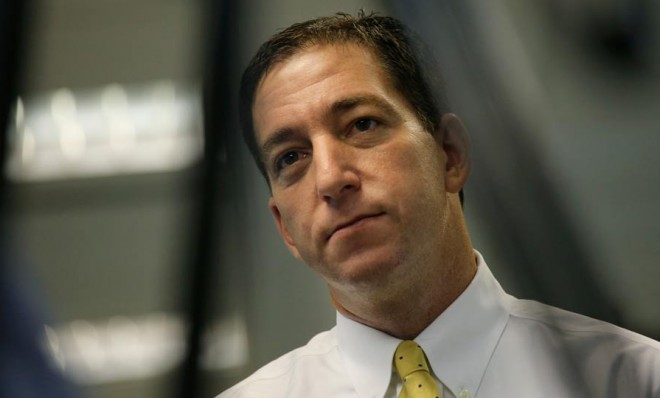Did Edward Snowden's leak make Americans less safe?
According to Glenn Greenwald: Nope


A free daily email with the biggest news stories of the day – and the best features from TheWeek.com
You are now subscribed
Your newsletter sign-up was successful
Politicians are turning up the heat on former CIA employee Edward Snowden, who has gone into hiding since outing himself this week as the person who leaked documents on the National Security Agency's broad surveillance programs.
House Speaker John Boehner (R-Ohio), among others, called Snowden, 29, a traitor. "The disclosure of this information puts Americans at risk," Boehner said. "It shows our adversaries what our capabilities are. And it's a giant violation of the law." Similarly, Director of National Intelligence James Clapper claims the leaks did "huge, grave damage" to U.S. intelligence gathering efforts.
Glenn Greenwald, who unveiled secret documents leaked by Snowden in Britain's Guardian, claims that none of the revelations "even remotely jeopardizes" U.S. security.
The Week
Escape your echo chamber. Get the facts behind the news, plus analysis from multiple perspectives.

Sign up for The Week's Free Newsletters
From our morning news briefing to a weekly Good News Newsletter, get the best of The Week delivered directly to your inbox.
From our morning news briefing to a weekly Good News Newsletter, get the best of The Week delivered directly to your inbox.
"Somewhere in between those two takes," says Josh Gerstein at Politico, "lies the truth."
Former officials say it's not so much the specifics of what was leaked as the huge wave of publicity the leaks generated: Every news story could serve as a revelation to some terrorists, and a reminder to others, of the nation's capabilities."It's kind of Darwinian," former National Security Agency Director Michael Hayden said. "The more stuff like this is in the public domain, we'll still catch terrorists, but it will be the stupid terrorists... The guys we should really be worried about will be far less likely to be swept up in this effort." [Politico]
The most dangerous terrorists, of course, are already doing everything they can to avoid using telephone lines or internet communication that might be spotted in the kind of dragnets the NSA has been using. Here's Rick Moran at American Thinker:
It's no accident it took a decade to catch up with Osama Bin Laden. The al-Qaeda leader took extraordinary precautions against being detected. Most of his communications within the al-Qaeda network were by old fashioned messenger...So how much damage was done by the leaks? Even stupid terrorists can cause a lot of casualties. Alerting them to the existence of these programs will make them more cautious — but probably not invisible. I don't know how intelligence agencies assess damage, but making it harder to track an enemy has to be considered a minus. [American Thinker]
Snowden's defenders, however, say that any damage the leak did — and they doubt there was much, if any — is far outweighed by the damage he prevented by exposing the extent of the government's vast surveillance apparatus. John Cassidy at The New Yorker argues that any honest accounting of the consequences of Snowden's actions will conclude he did the right thing.
So what is Snowden's real crime? Like Ellsberg, Vanunu, and Bradley Manning before him, he uncovered questionable activities that those in power would rather have kept secret. That's the valuable role that whistle-blowers play in a free society, and it's one that, in each individual case, should be weighed against the breach of trust they commit, and the potential harm their revelations can cause. In some instances, conceivably, the interests of the state should prevail. Here, though, the scales are clearly tipped in Snowden's favor. [The New Yorker]
A free daily email with the biggest news stories of the day – and the best features from TheWeek.com
Harold Maass is a contributing editor at The Week. He has been writing for The Week since the 2001 debut of the U.S. print edition and served as editor of TheWeek.com when it launched in 2008. Harold started his career as a newspaper reporter in South Florida and Haiti. He has previously worked for a variety of news outlets, including The Miami Herald, ABC News and Fox News, and for several years wrote a daily roundup of financial news for The Week and Yahoo Finance.
-
 What to know before filing your own taxes for the first time
What to know before filing your own taxes for the first timethe explainer Tackle this financial milestone with confidence
-
 The biggest box office flops of the 21st century
The biggest box office flops of the 21st centuryin depth Unnecessary remakes and turgid, expensive CGI-fests highlight this list of these most notorious box-office losers
-
 The 10 most infamous abductions in modern history
The 10 most infamous abductions in modern historyin depth The taking of Savannah Guthrie’s mother, Nancy, is the latest in a long string of high-profile kidnappings
